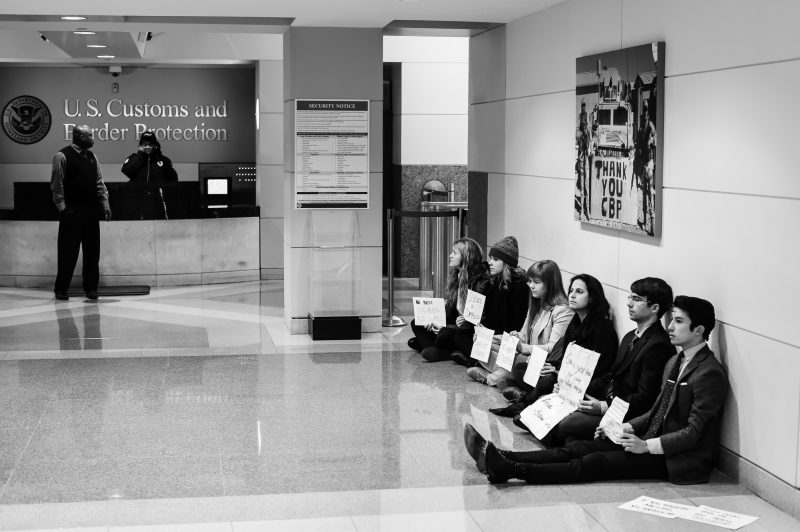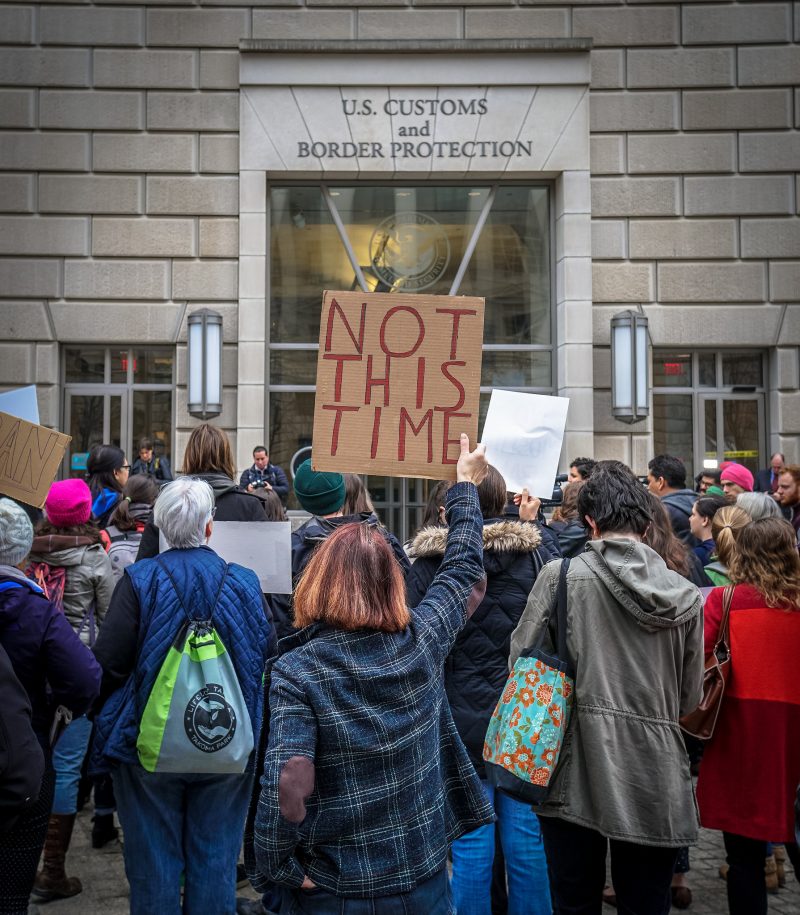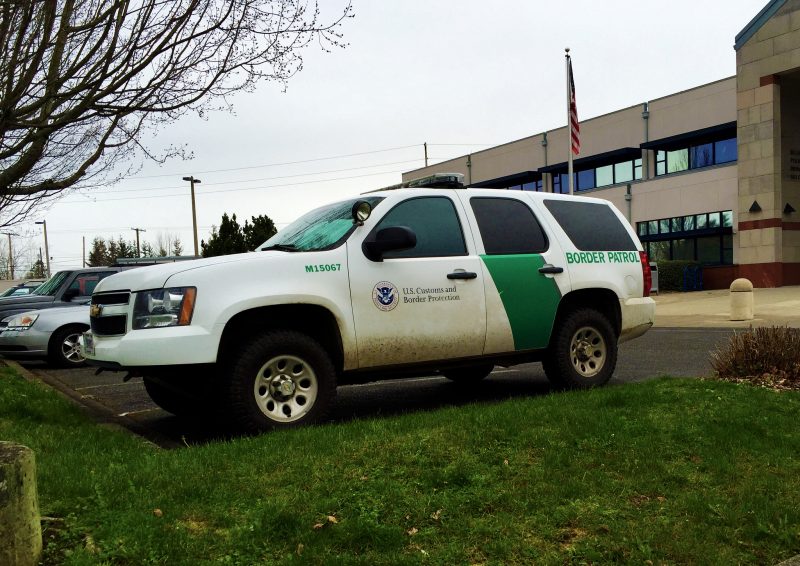Entering the United States
If you are a foreigner entering the United States, whether, for leisure, school or any other activity, you will most likely have to face a short interview at the airport with the CBP officer. The CBP – Customs and Board Protection – officer’s job is to protect the border and deny access of several categories of individuals that might include illegal immigrants or anyone who poses a threat to the United States. So they ask a lot of questions. They try to get to know the person in front of them and see if, for instance, he or she is only visiting as a tourist and not planning to overstay or work illegally. The questions are random but it is very important to answer honestly, or else it could mean trouble.
IN THE PHOTO: SIT IN AT CBP. PHOTO CREDIT: GEOFF LIVINGSTON/ FLICKR
“Do you have a portable electronic device with you? Can I see it?”
This is one of the questions a CBP officer might ask you. Under the Bush administration, a new regulation was introduced allowing CBP officers not only to ask questions but also search through a person’s devices and social media accounts. This kind of search has rapidly increased in the past year – from 5,000 searches in 2015 to 25,000 in 2016 – and even more so under the Trump administration.
While the primary objective is to recognize threats, this process is potentially a violation of our privacy, especially considering that some CBP officer might just check our devices, while others are able to download their own “special device” documenting the call log, emails, browsing history, photos and videos – including the deleted ones – from our device, and then share all those with Federal Investigation Agencies.
“Wait, I have very sensitive information stored on my computer!”
One particular category of this violation involves businessmen and women coming to the US with highly confidential material, such as lawyers with personal data of individuals, or scientists working with companies and their confidential new projects. In both cases, CBP access to the material in their device might be a violation of the privacy standard of the work.
Related Article: “UNCHAIN AMERICA”
For everyone else, we store in our devices vast amounts of incredibly sensitive information. It is understandable to feel vulnerable when an officer goes through your history on Facebook or conversations on Whatsapp. Reading one thing in a context might mean something while reading it or seeing it as a third person might make it look completely different. Social media most likely will show your political opinions and views, and those might not be necessarily compatible with the people in front of you. If you are an activist and very opinionated on socials, chances are greater you will be subject to this kind of “random” search through your devices.
IN THE PHOTO: PROTEST IN WASHINGTON DC. PHOTO CREDIT: TED EYTAN/ FLICKR
Your Rights
The search on your devices or social media accounts challenges numerous rights that would normally be granted by the United States constitution.
The Fourth Amendment contains safeguards against search and seizures. Could searching through devices and socials be considered a real search and seizure in its constitutional meaning? Courts in the USA have expressed different points of views. Some have ruled that this could be considered “search and seizure” and thus the Fourth Amendment would protect electronic devices from CBP scrutiny. In this case, search and seizure access could only be done after a warrant has been issued. According to other judges, this does not fall in the same category and therefore no protection is granted.
It is also important to acknowledge that CBP officers have a particular status that enables them to take this kind of action: when you are in front of them you are not technically inside the United States and your rights are yet to be granted.
Freedom of expression is perhaps the right that is more at risk here. How could it be possible to protect the freedom of expression if a person, like the CBP officer, can read whatever content is in our devices and have the power to judge us based on what he finds? It is a blurry thin line: the search should only be done for a legitimate reason. Any other reason, particularly stemming from conscious or unconscious bias, should not be under consideration by the CBP officer as it will be in violation of the freedom of expression.
Protect your data
How is it possible to protect your data then? One idea is to give up your devices while traveling. If you can, leave your device at home and do not use a smartphone in the United States. Another option would be to store all your material on the cloud, so it is not directly on your device while entering the States and can only be accessed with a username and password. Other than these options, there is not much else you can do.
Assuming we are all good citizens and aware of our privacy rights, it would not be a good idea to try to prevent a CBP officer from looking through our devices. You might end up in jail while waiting for the next flight to take you home. What you can do is actually complain and have the officer write down your complaint. If you feel like your privacy rights were violated, you can write later protesting the CBP actions or petitioning to a US human rights association. This last option might be combined with similar petitions and submitted to a court.
IN THE PHOTO: UNITED STATES BORDER PATROL. PHOTO CREDIT: ALEX SMITH/ FLICKR
Conclusions
The situation is complicated. On one hand, CBP officers are trying to do their job and whatever they are instructed to do. On the other hand, our privacy might be at risk. The key thing is not to try to be a hero in such a situation. Most likely you are entering the country to study, work or be on vacation and it is not worth it to cause any trouble. Be kind to the officer if he or she decides to search your device, but you can do so while making sure the CBP knows you aren’t happy about it.
Recommended Reading: “More Than Hurt Feelings: The Real Danger of Hate Speech”













